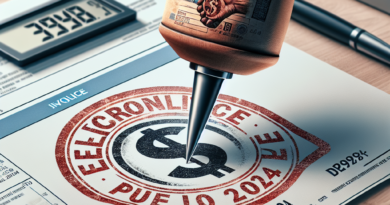What is the maximum amount for cash payments of invoices?
Is It Possible to Pay an Invoice in Cash?
There is nothing preventing you from settling an invoice using cash.
This is common practice for small amounts or with smaller suppliers who prefer having cash on hand rather than electronic payments.
However, the main issue is that in recent years the fight against tax evasion has intensified, leading to a preference for traceable payment methods.
Consequences of Paying in Cash
One consequence of this choice is that many expenses are only deductible if paid with traceable means of payment.
This has no effect on the possibility of using cash, but it aims to make payment by debit card or credit card more convenient.
When paying an invoice in cash, one must consider the fiscal risks involved, especially for entrepreneurs, self-employed individuals with a VAT number, or professionals who are more exposed to potential audits.
What is the Limit for Cash Payments?
The limit for cash payments is set at 5,000 euros, meaning invoices with an amount up to 4,999 euros can be paid in cash.
However, it’s important to note that the Revenue Agency is now aware of all transactions made by professionals, companies, or individuals thanks to electronic invoicing transmitted electronically.
Therefore, VAT subjects’ financial movements are fully transparent to the tax authorities.
Cash transactions are becoming increasingly restricted, and exceeding the limits can result in administrative penalties.
Risks of Paying in Cash
Fiscal controls aim to verify not only income but also deductions.
When paying an invoice for goods that are eligible for deductions or tax credits, traceable payments easily prove the transaction.
However, if the payment is made in cash, it is impossible to prove that the transaction took place, risking the non-recognition of the expense and potential taxation on the amount.
For cash payments on electronic invoices, the code to enter in the payment method is MP01.
In case of a tax audit, cash payments for invoices will not be verifiable.
Without documented payment, the tax authorities may consider the invoices unpaid, leading to potential taxation on those amounts.




